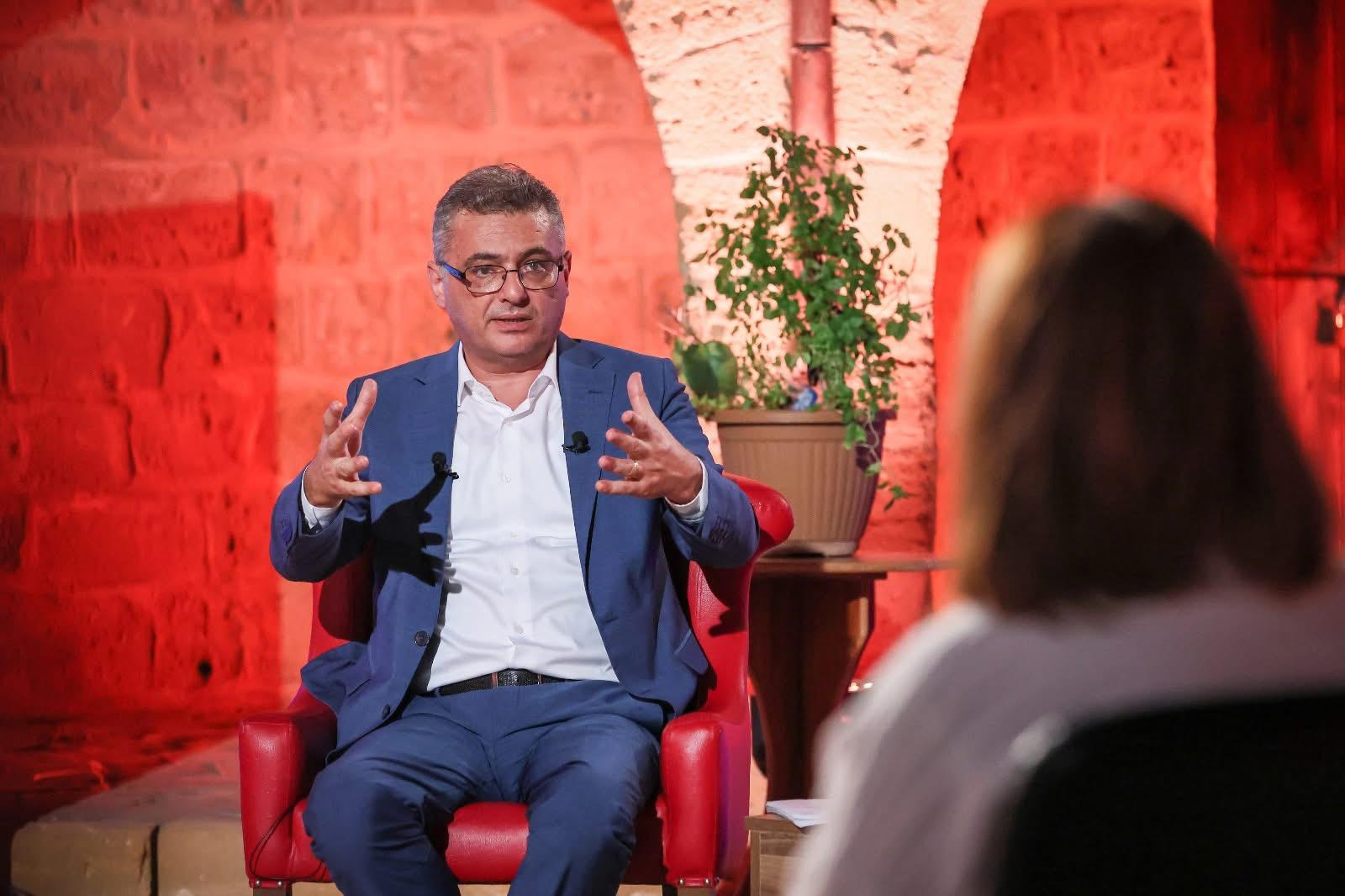Turkish Cypriot leader Tufan Erhurman on Tuesday offered criticism for President Nikos Christodoulides, whom he accused of “ignoring” the Turkish Cypriots over plans to construct a pipeline to transport Israeli natural gas to Cyprus.
“What we are saying is clear. Turkish Cypriots are one of two equal constituent partners on this island, and it is impossible for decisions on issues such as energy and maritime jurisdiction to be made without our will, ignoring the Turkish Cypriots’ sovereign rights, he wrote in a post on social media.
To this end, he said that “I do not consider Christodoulides’ call for immediate negotiations for a comprehensive solution while simultaneously ignoring Turkish Cypriots and participating initiatives to transport Israeli natural gas undersea to Cyprus as a positive sign of sincerity”.
“To achieve a solution in Cyprus, we first need a working atmosphere. It is clear that this atmosphere cannot be achieved by ignoring the Turkish Cypriot people, especially through initiatives which have a high potential to negatively impact the search for lasting stability and peace in the region,” he said.
He added that he wishes to “reiterate with the utmost clarity that we will continue to make every effort to foster an atmosphere for a solution on the island”, but that “we will never ignore actions which undermine this atmosphere”.
Greek-owned energy company Energean had confirmed on Monday that it had signed a letter of intent with Cypriot company Cyfield for the creation of a gas pipeline linking gas fields off the coast of Israel with Cyprus.
Energean said it intends to design, construct, own, and operate the pipeline, which would directly connect the floating production, storage, and offloading unit (FPSO) Energean Power with the island of Cyprus.
“The agreement and project are subject to the approval of the governments of Cyprus and Israel. Should all necessary approvals be obtained, the project would mark a significant step forward for regional energy integration and security of supply,” the company said.
It added that the plan “offers a practical and cost-efficient solution to Cyprus’ energy isolation by providing direct access to natural gas from a neighbouring source”, and that this will both “strengthen regional energy cooperation and support the transition to cleaner, more sustainable energy”.
Erhurman also briefly made reference to the matter of the Great Sea Interconnector project, which, if completed, would connect the energy grids of Cyprus, Greece, and Israel.
He said that that project, too, is being carried out without the consent of the Turkish Cypriots, though the governments of Greece and Cyprus remain somewhat at odds over the matter.
The rift between the two governments is sourced from the Cypriot government’s initial agreement to make five annual payments of €25 million to Greece’s independent transmission system operator Admie before the interconnector is operational, but which it has thus far withheld.
Papanastasiou said in September that the Cypriot government will pay the first €25m instalment when the project is being “implemented in its entirety”, and that the construction of cables alone is “not enough” to meet this criterion.
Meanwhile, Cypriot Finance Minister Makis Keravnos had on multiple occasions said the project is not sustainable, repeatedly drawing the ire of high-level members of the Greek government.
In response, Turkish Cypriot ‘energy minister’ Olgun Amcaoglu had in August suggested that the Greek Cypriots instead support Turkey’s plan to build a two-way electricity cable to connect Turkey and the north.
“We want to implement this project through Turkey, which is already connected to Greece … We want to be interconnected. Furthermore, we want to bring green energy to the TRNC and to the island of Cyprus,” he said, before suggesting that the project of constructing a cable linking the island to Turkey could be a “joint project” between the island’s two sides.






Click here to change your cookie preferences